 Susan Tepper: Shadows like naked nymphs on warm, golden-green grass (I paraphrase here), your first line of “Transparency,” Susan Gibb. Well, the poetry of the line yanked me in by the neck.
Susan Tepper: Shadows like naked nymphs on warm, golden-green grass (I paraphrase here), your first line of “Transparency,” Susan Gibb. Well, the poetry of the line yanked me in by the neck.
I’m nosey about first lines, because of their importance. And your first line in “Transparency“ is a gorgeous one. Many editors and agents claim to read just a first line and then decide whether to continue reading. Did this story actually begin with that line, or did you bring it in at some point later after revision?
Susan Gibb: Oh thank you, Susan! This is one of the greatest gifts yet an irksome one that I cherish as a writer. Almost all my stories start off right there, with a phrase or sentence that is the opening line and without a clue where it’s going, the story takes off from there. Usually I go stare at the backyard and catch something that sounds good as it flies by. I’m not the type to have the concept of story before writing something down. If I try to do that, it usually comes out forced and rather unimaginative. On the negative side, if I don’t have an opening line, I’m stalled at the red light. With the theme prompts of the 52/250 project, something will pop into my mind that’s drawn on the theme and it just goes on until the story is done. Even in essay writing back in school, I could wait days for that starter sentence and not have anything at all written, but once that beginning came through, the rest was just a matter of continuing. I’ve been known to write an essay, composition, or story, in a complete form, then go back and make up an outline for it if it was a required part of the exercise. The other negative to this method? I’ve had “At first there were only the three of us…” circling in my brain for a month.
Susan Tepper: That is exactly how I write. I love the spontaneous writing, I can’t do it any other way, either.
In your strong lyrical opening line, out of your unconscious mind you set up the whole plot for this story. You give the words: naked, dark, warm, float, shifting. Pretty sexy word choice, I’d say. And this story is about sex and its further complications.
Susan Gibb: One of the most fascinating things about people is how they interact, particularly in close relationships. There’s a point where you think they’d have bared their souls to each other, been completely themselves, and yet somewhere, for some reason, they’ve pulled back. It’s this pulling back, this transitional point where this couple seems to be. Yes, one has overstepped the boundaries and yet, a completely new pattern has developed for them. The whole environment has changed. There are little subtleties in their movements and their vivid awareness of each other that are like little rebellions because they’re not ready or willing to lose the whole war. The war, in this case, being the goal of keeping their marriage together.
Susan Tepper: The transitional point in a relationship. Such a great place to write from. I notice that you don’t name them, which is interesting, yet you name the third party. Joe.
Susan Gibb: Yes, I seem to have a problem with naming characters. I believe you pointed that out to me in a story accepted for the Istanbul Literary Review! Particularly when there are three people in the story, you’ve got to break with flow and name one of the “hes” or the “shes” or it gets confusing. I think that for me, the non-naming makes it more intimate, more about people you may know. If I name them, or if I read a story with names, I can relate, but I’m limiting the possibilities. Does that make any sense? It’s like the author says that this is about Mary and John, so it couldn’t be about Sophie and Klaus. Though it’s not a conscious avoidance on my part when I write. It just comes through this way. As far as Joe, well he did a bad thing and I’m not the least bit careful about calling him out by name.
Susan Tepper: I hear you on keeping it to the “he and she”. I do that myself, often, and like it for certain stories. It kind of feels more loose, too, like the author can push the envelope more. That anonymous “he and she.” And it works well in this story. But here’s what throws me. You call out Joe by name, saying he did a bad thing. But doesn’t it take two-to-tango?
Susan Gibb: Oh, yes, it sure as hell does. And this was sort of tongue-in-cheek, I suppose; my mind was in the husband’s character where women aren’t to blame because for goodness’ sake, they don’t know any better. That’s a very complicated part of human ego. His, not wanting to give her the one-ups-manship of having strayed outside their marriage while he toiled within it. The male macho thing comes into play as well, where he probably wants to punch somebody and so he’s okay if he thinks of the other guy as the target of his anger. I think that for me, while the story came out of watching shadows play on the backyard grass, the movement of the world around these two people is more telling of the stagnation of their marriage than anything else. He’s made only that subtle shift, in the angle of his chair, to indicate any change. For her part, she’s almost daring him to argue, by facing her chair boldly out into the yard. Metaphorically, facing their relationship problems head on.
Susan Tepper: I gotta say, Susan Gibb, you’d make one hell of a lawyer. You just lobbed that one back at me so good I’m still reeling! Seriously, this is great! Yes, they are in this amazing construct of their marriage, this little womb-tomb-thingy they’ve made to protect the fortress. I love it!
He is the dark, she is the light. And they both want it that way. Stunningly complicated. And probably more commonly accepted than I ever realized. You have opened my eyes here.
Read “Transparency” by Susan Gibb
Monday Chat is a bi-weekly series in which Susan Tepper has a conversation with a Fictionaut writer about one of his or her stories. Susan is Assistant Editor of Istanbul Literary Review, fiction editor of Wilderness House Literary Review, co-author of new novel What May Have Been, and hosts FIZZ, a reading series at KGB Bar.
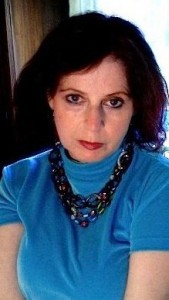
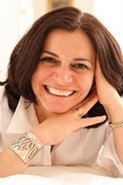
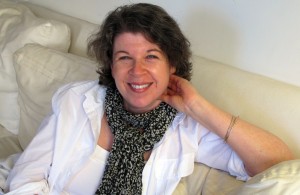 Fictionaut is a community of readers as well as writers, and sometimes we talk about writers we love. So, one of my Fictionaut friends said to me one day, You. Must. Read. Meg. Wolitzer.
Fictionaut is a community of readers as well as writers, and sometimes we talk about writers we love. So, one of my Fictionaut friends said to me one day, You. Must. Read. Meg. Wolitzer.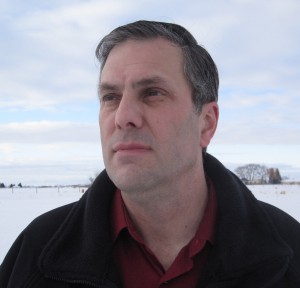 David Abrams
David Abrams Susan Tepper: “And here is the stair… the stair which gave up / the rest of the house sometime ago.”
Susan Tepper: “And here is the stair… the stair which gave up / the rest of the house sometime ago.”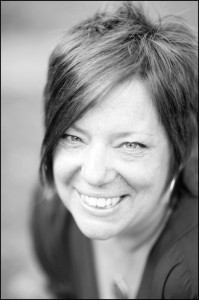 Robin Antalek is the author of
Robin Antalek is the author of 